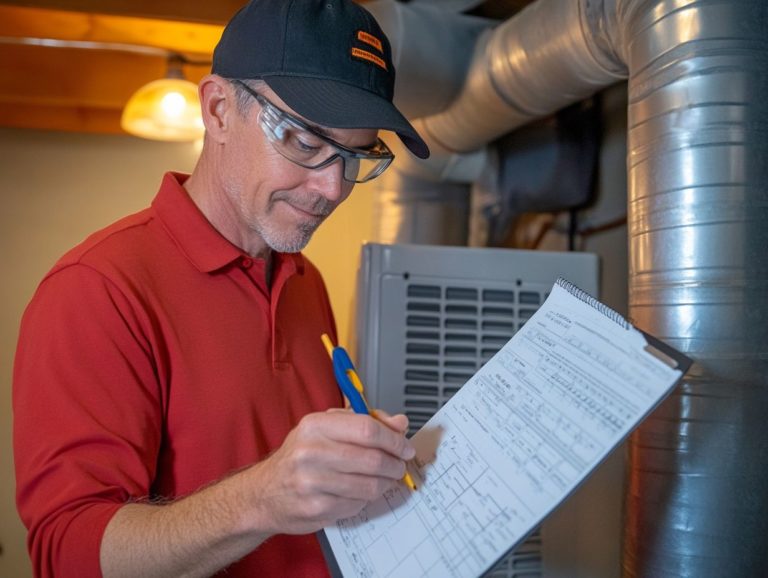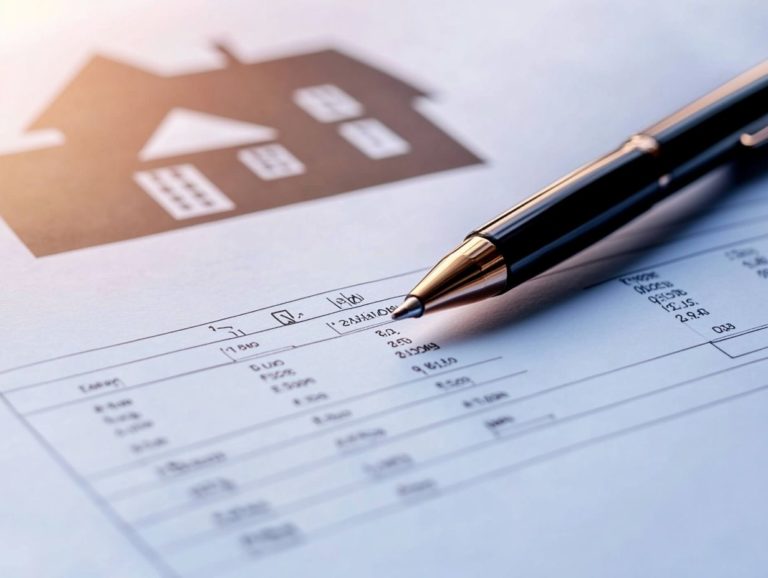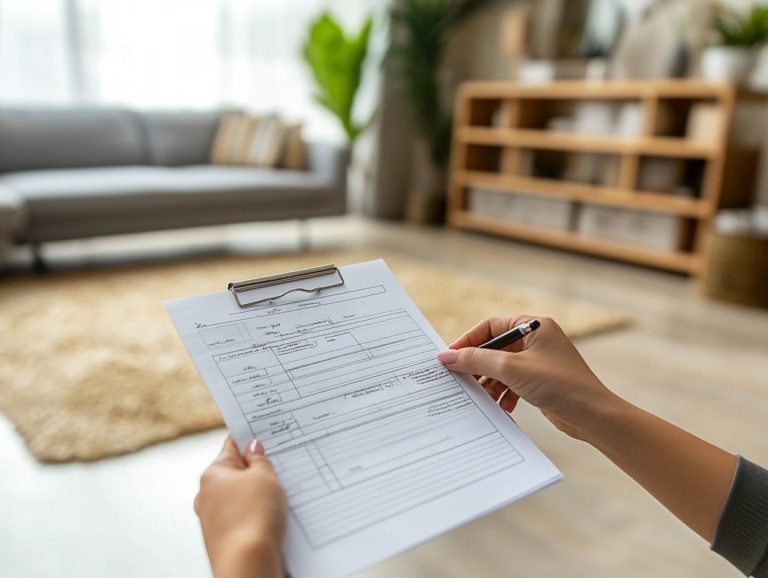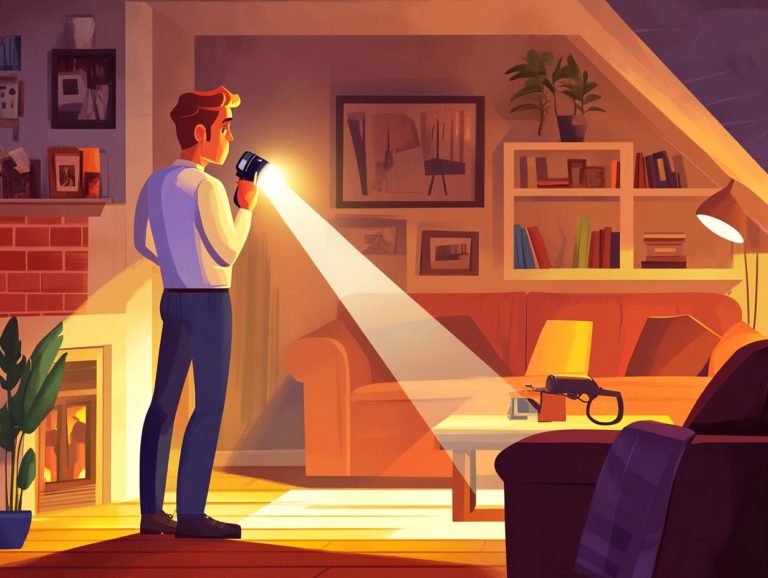Understanding the Home Inspection Process Timeline
Buying a home is a big investment. A thorough home inspection helps you make a wise choice.
This guide covers everything you need to know about home inspections. From the preparation steps to deciphering the final report, we’ve got you covered.
Discover common issues that may arise and how to effectively address them. We also provide a timeline to keep your process on schedule.
Get ready to master the home inspection process! This knowledge is your key to making a confident purchase.
Contents
- Key Takeaways:
- Preparing for a Home Inspection
- The Home Inspection Process
- Common Issues Found During Home Inspections
- Timeline of the Home Inspection Process
- Understanding the Home Inspection Report
- Frequently Asked Questions
- What is the home inspection process timeline?
- How long does the home inspection process usually take?
- What happens during pre-inspection preparations?
- What is included in the actual inspection process?
- What happens after the home inspection is completed?
- Do I need to be present during the home inspection?
Key Takeaways:
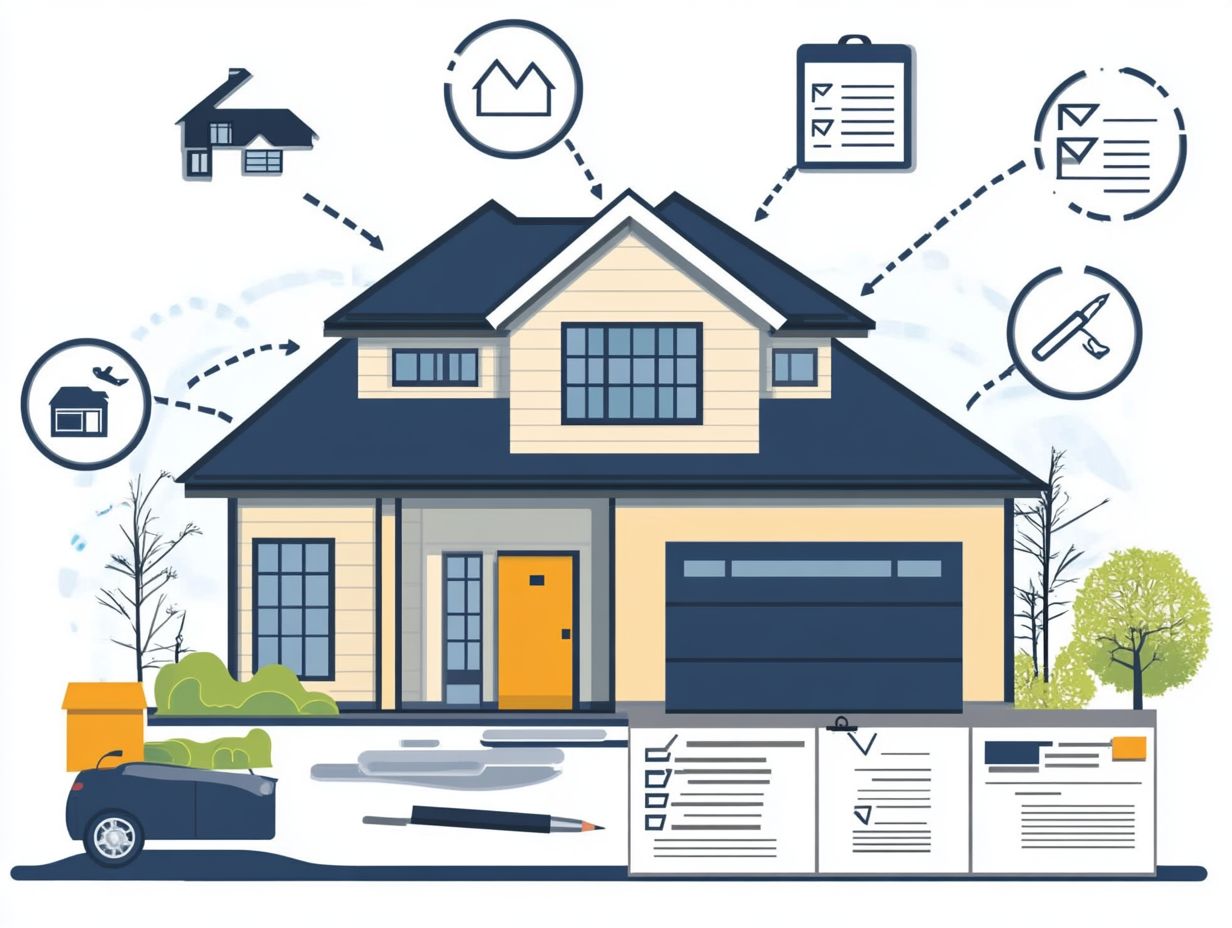
Understanding the home inspection process is vital for both buyers and sellers.
Good preparation before the inspection saves time. It also helps you avoid surprises.
The home inspection process can take about 2-3 hours, from scheduling to receiving the final report, making it crucial to understand the home inspection process.
What is a Home Inspection?
A home inspection is a thorough assessment of a property. It is typically performed by a seasoned inspector.
This evaluation checks the home s condition. It looks for safety issues and examines key systems like the structure, plumbing, electricity, and heating and cooling.
This process is essential in the real estate market, especially for home buyers like you. Understanding the true condition of a property is crucial before making a significant investment.
By reviewing the inspection findings, you gain invaluable insights. These insights can reveal hidden issues or discrepancies that sellers must disclose.
This knowledge enhances your decision-making capabilities. It also serves as a powerful negotiation tool, leading to necessary repairs or adjustments in the price.
The importance of buyer protection in this scenario cannot be overstated. As an informed buyer, you ll be better equipped to navigate potential pitfalls and ensure that your investment is sound.
Preparing for a Home Inspection
Preparing for a home inspection requires you to take essential steps. For more detailed information, refer to our guide on understanding the home inspection process. This sets both you and the buyer up for success.
This preparation greatly influences the inspection report and the negotiations about the home sale.
What to Do Before the Inspection
Before the home inspection, gather all essential maintenance records. Provide relevant documents, such as seller disclosures, to assist the inspector.
This practice demonstrates your commitment to maintaining the home’s condition. It also fulfills your obligations as a seller, fostering trust with potential buyers.
Ensure that all areas of your home are easily accessible. This allows for a comprehensive assessment without unnecessary delays.
To clarify responsibilities, carefully review the inspection agreement beforehand. It outlines important requirements for both you and the inspector.
Act now! These steps ensure a smoother transaction and help you avoid surprises down the line.
The Home Inspection Process
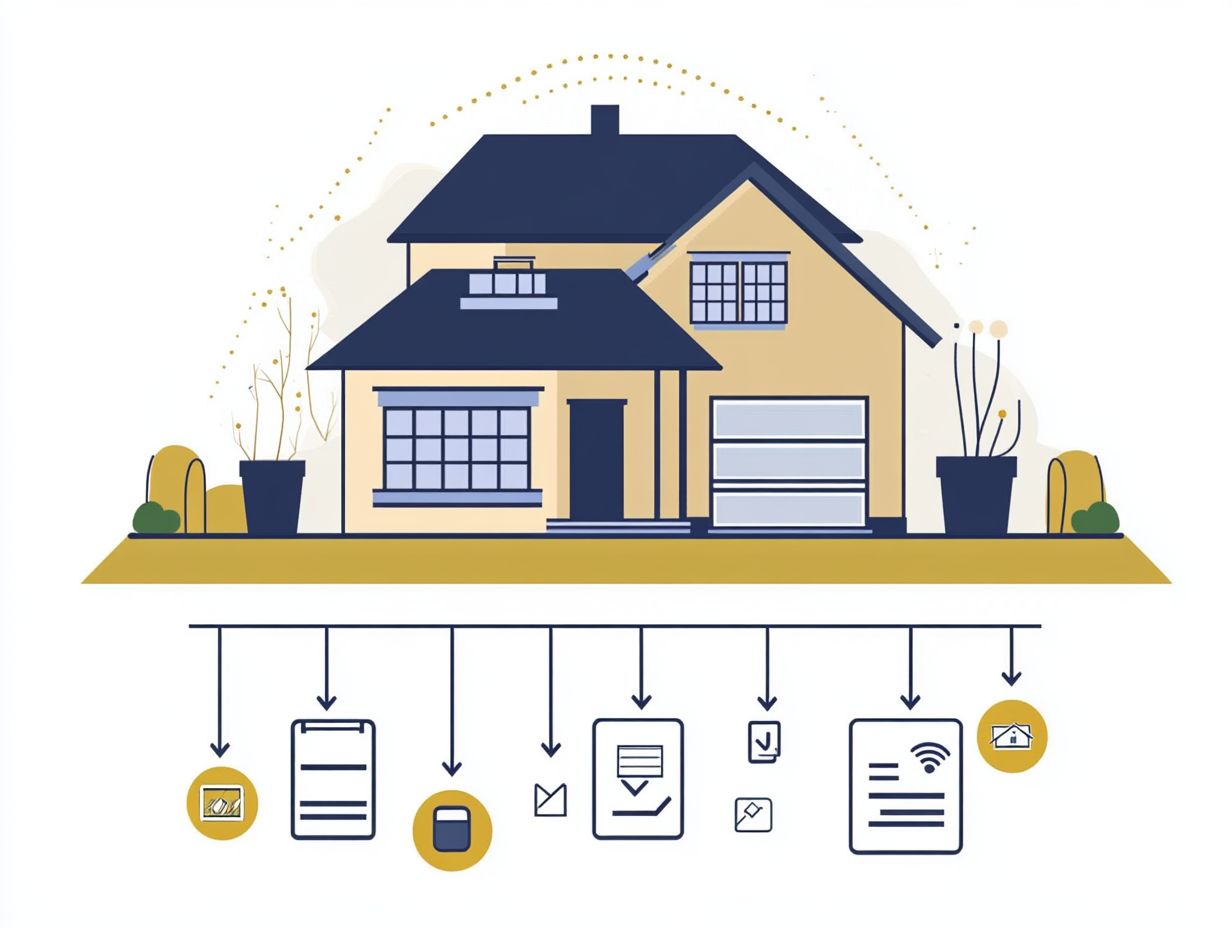
The home inspection process is a comprehensive evaluation conducted by a seasoned inspector. It is designed to assess your home’s key systems and overall condition, making understanding the home inspection process for buyers essential for informed decision-making.
This assessment is vital for you as a home buyer. It enables you to uncover potential safety issues and other concerns before you commit to your purchase.
Step-by-Step Guide
A step-by-step guide for you to conduct a home inspection includes important areas like the structural system, plumbing system, electrical system, and heating, ventilation, and air conditioning systems. This ensures you carry out careful checks and notes.
Each of these systems is critical to the overall safety and functionality of a property. Act now to prevent future costs! Inspect the structural system for any signs of damage or instability issues here can escalate into significant problems later on.
Next, examine the plumbing system for leaks, water pressure, and drainage efficiency. Any deficiencies you spot could hint at larger concerns lurking beneath the surface.
Regarding the electrical system, focus on the integrity of the wiring and ensure there is proper grounding to prevent potential hazards.
The HVAC system deserves your attention as well; check for proper airflow and maintenance, as this directly impacts comfort and energy efficiency.
Finally, gather all your findings into a comprehensive property assessment report. This report will serve as a vital tool for potential buyers or sellers, helping them make informed decisions about the property.
Common Issues Found During Home Inspections
During home inspections, you may encounter a range of common issues, such as mold concerns, foundation problems, and various safety hazards. Each of these factors can significantly impact the property’s value and influence your decision-making process as a buyer.
Identifying and Addressing Problems
Identifying and addressing issues uncovered during a home inspection is essential for both buyers and sellers. This process not only highlights necessary repairs but also plays a pivotal role in shaping the negotiation process for repair credits or adjustments to the sale price.
By carefully reviewing the inspection results, you can prioritize issues that pose a risk to the safety of the home, ensuring that critical repairs don t slip through the cracks. Obtaining contractor estimates for these repairs gives you a clear understanding of potential costs, which is invaluable during negotiations.
This insight allows you to engage in meaningful discussions about inspection contingencies, fostering a collaborative spirit in problem-solving.
Understanding these factors profoundly influences your negotiation strategies. It gives buyers the power to advocate effectively for fair terms while enabling sellers to present a realistic portrayal of the property s condition.
Timeline of the Home Inspection Process
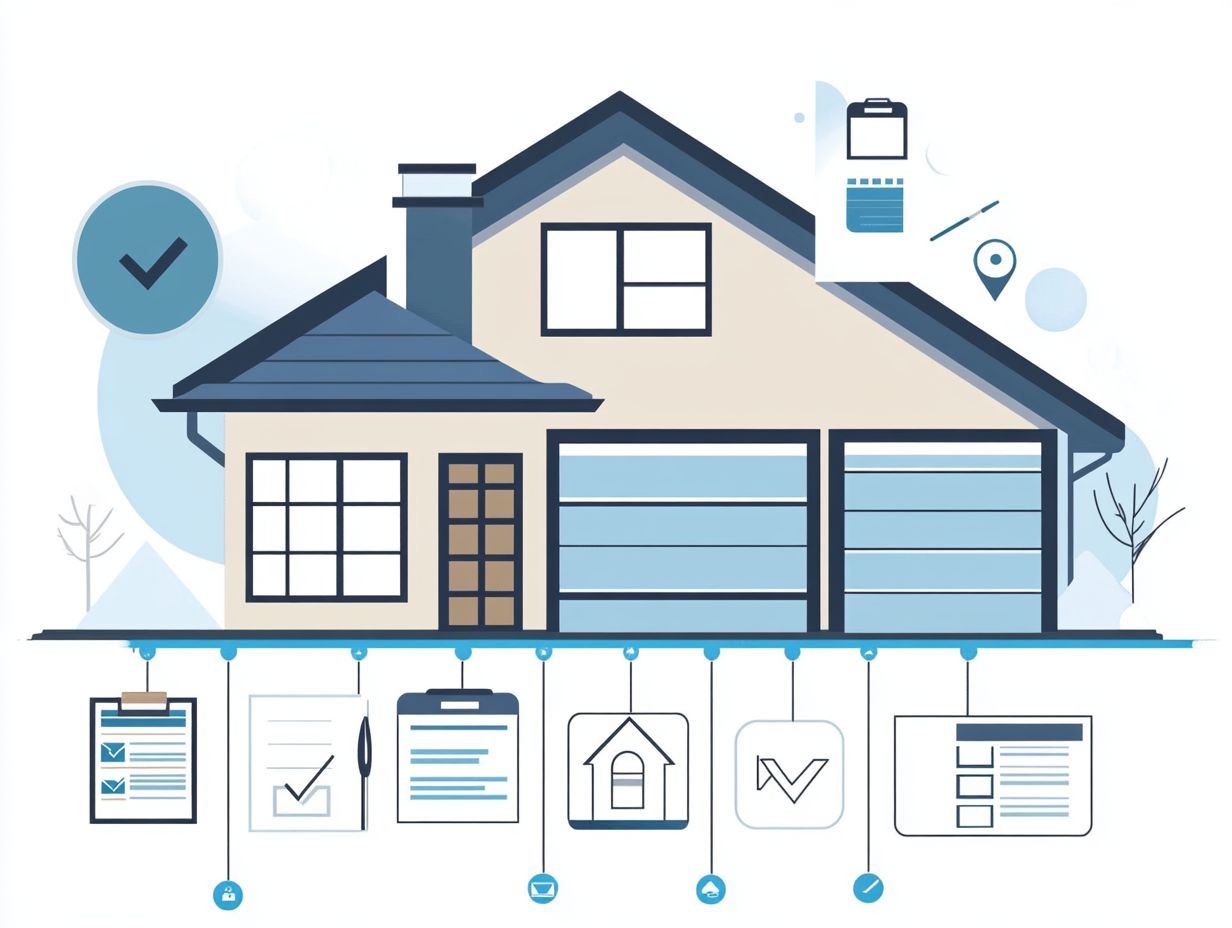
Here s a quick guide to the home inspection process:
- Schedule the inspection.
- Duration of evaluation.
- Receive the final report.
Each of these components is essential for both home buyers and sellers, as they play a crucial role in navigating the complexities of a real estate transaction.
From Scheduling to Final Report
From scheduling a home inspection to receiving the final report, each step is paramount. It not only safeguards your interests as a buyer but also equips the seller with valuable insights into the property’s condition, allowing for informed decisions moving forward. To gain a deeper insight, refer to our guide on understanding the process of home inspections.
Once you’ve scheduled the inspection, it’s essential to communicate all requirements clearly to ensure a seamless process. The inspector will meticulously evaluate everything, from structural integrity to plumbing and electrical systems. For more detailed insights, check out understanding the home inspection process, leaving no stone unturned.
During this time, maintaining timely communication is crucial. Both you and the seller should stay updated on any potential issues that arise during the inspection.
Once the findings are compiled, the final report will provide a comprehensive overview of the property’s condition. This invaluable information gives you the power to negotiate effectively or make confident purchasing decisions.
Understanding the Home Inspection Report
Understanding the home inspection report is essential for you, whether you’re buying or selling. This document offers valuable insights into the property’s condition, and understanding the home inspection process for sellers can guide your decisions on necessary repairs and influence negotiations during the real estate transaction.
Interpreting Results and Next Steps
Understanding your home inspection report is crucial. To make informed decisions, you should assess each finding and learn about the importance of home inspections for your next steps.
This might involve discussing repairs, requesting credits, or considering additional inspections.
Take time to review the report carefully. Knowing your rights about repairs is essential for successful negotiations.
You can ask the seller to fix important issues or request credits for repairs after the sale.
If you re the seller, you must disclose any known issues. Be ready for repair requests by honestly evaluating the report.
Clear communication and a willingness to work together can help both parties find a satisfactory solution.
Frequently Asked Questions
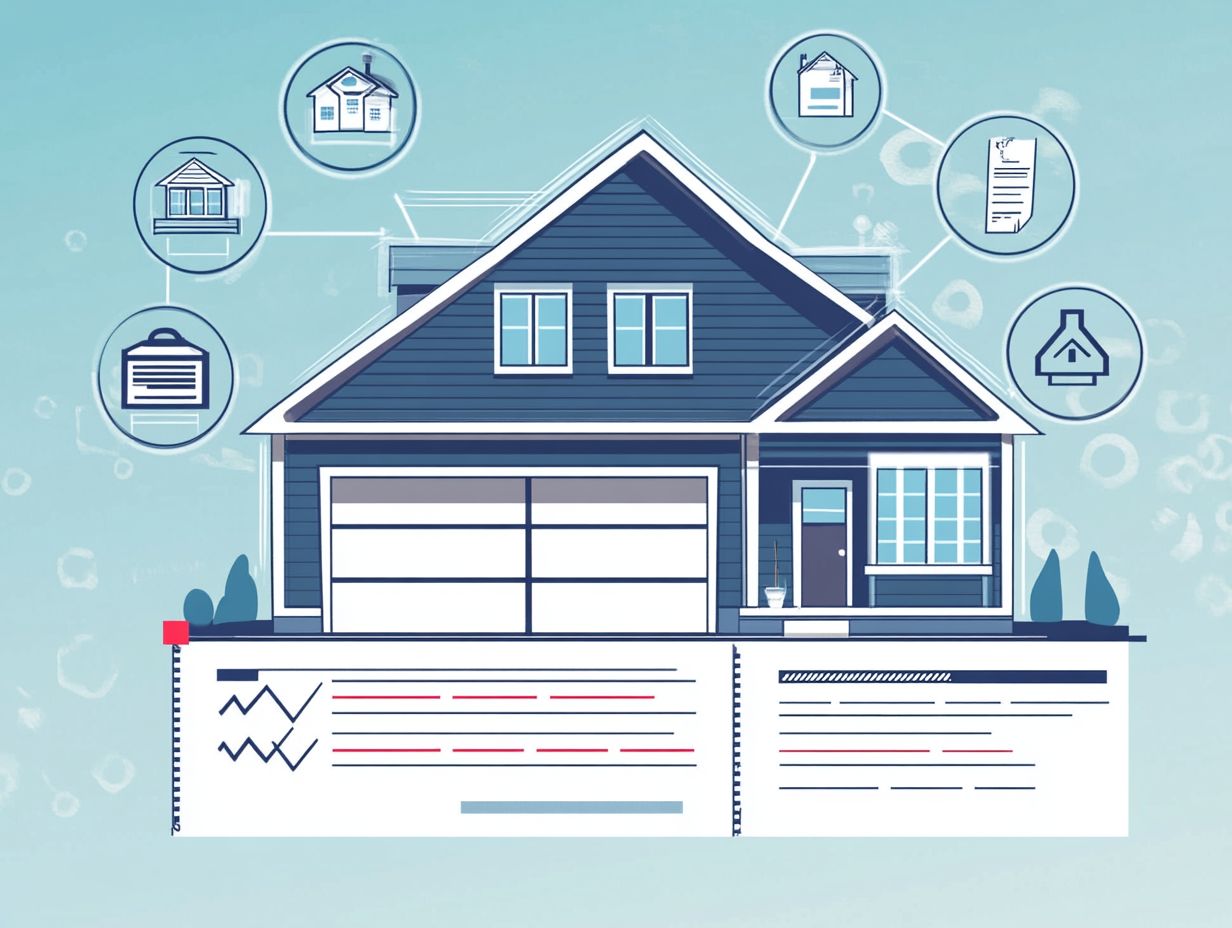
What is the home inspection process timeline?
The home inspection process timeline outlines the steps of inspecting a property before purchasing. It includes pre-inspection prep, the inspection itself, and follow-up actions, as detailed in understanding the home inspection timeline.
How long does the home inspection process usually take?
The duration can vary based on the property’s size and condition. Typically, it takes 2 to 4 hours for a standard single-family home.
What happens during pre-inspection preparations?
Before inspecting, the inspector gathers property information, including age and previous issues. They also coordinate with the seller to schedule access and encourage buyers to list their concerns.
What is included in the actual inspection process?
The inspection examines the property’s interior and exterior. Inspectors look at the foundation, roof, HVAC systems, plumbing, electrical, and safety hazards.
What happens after the home inspection is completed?
After the inspection, you receive a detailed report of findings and recommendations. This report helps negotiate repairs or can lead to backing out if significant issues arise.
Do I need to be present during the home inspection?
While not required, it s highly recommended for buyers to attend. Being present allows for questions and helps understand the property’s condition better.


